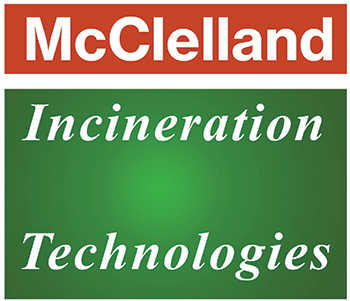 The global shipping industry, a vital artery of international trade, faces an ever-growing challenge: managing the vast quantities of waste generated both onboard vessels and within bustling port environments. With increasing scrutiny on marine pollution and stringent international regulations like the MARPOL Convention, achieving sustainable waste management is no longer optional it’s a fundamental aspect of operational compliance and environmental stewardship. Among the most effective and compliant solutions for this complex waste stream, advanced incineration stands out.
The global shipping industry, a vital artery of international trade, faces an ever-growing challenge: managing the vast quantities of waste generated both onboard vessels and within bustling port environments. With increasing scrutiny on marine pollution and stringent international regulations like the MARPOL Convention, achieving sustainable waste management is no longer optional it’s a fundamental aspect of operational compliance and environmental stewardship. Among the most effective and compliant solutions for this complex waste stream, advanced incineration stands out.
The Unique Waste Challenge of the Seas
Vessels traversing the world’s oceans generate diverse waste streams, including general garbage, oily sludge, bilge water, sewage, and sometimes even medical or food waste. Space onboard is limited, making long-term storage impractical. Historically, improper disposal at sea led to widespread marine pollution, severely impacting ecosystems and coastal communities. Today, the International Convention for the Prevention of Pollution from Ships (MARPOL), particularly its Annex V (for garbage) and Annex I (for oil), dictates strict rules for waste discharge, necessitating robust management solutions both at sea and when docked. Port facilities, too, contend with waste collected from ships, as well as waste from their own operations.
Incineration: A Powerful Tool for Marine and Port Compliance
Modern incineration technology offers a highly efficient and environmentally sound method for managing marine and and port-generated waste, helping to ensure compliance with MARPOL and local environmental regulations.
Onboard Incineration: For larger vessels, incinerators specifically designed for marine environments allow for the safe and complete destruction of various wastes at sea. This capability significantly reduces the volume of waste that needs to be offloaded at port reception facilities, especially for oily rags, sludge, and contaminated plastics. The high temperatures achieved effectively neutralize pathogens in food waste and medical waste, reducing biohazard risks and preventing the spread of invasive species. This self-sufficiency reduces operational costs and enhances compliance in remote areas where port facilities may be inadequate.
Port-based Incineration: Ports serve as crucial hubs for waste reception from ships. Advanced incinerators located within or near port areas can efficiently process these collected wastes, along with waste generated by port operations themselves. This ensures that diverse and sometimes hazardous marine waste is treated according to stringent land-based environmental standards, preventing landfill overflow and mitigating pollution risks. The ability to handle varying waste types and achieve significant volume reduction makes incineration an ideal component of an integrated port waste management strategy.
The Pillars of Sustainable Marine Waste Management
Implementing incineration solutions in the shipping and port sectors contributes significantly to sustainability by:
Drastic Volume Reduction: Minimizing the amount of waste requiring land disposal, conserving landfill space.
Pathogen Destruction: Eliminating infectious agents in food and medical waste.
Energy Recovery Potential: Some systems can recover heat, contributing to the vessel’s or port’s energy needs, reducing reliance on fossil fuels.
Compliance Assurance: Providing a reliable method to meet MARPOL discharge prohibitions and other international and national environmental regulations.
Cleaner Oceans: Reducing illegal dumping and accidental discharge, directly contributing to the health of marine ecosystems.
Mc Clelland Engineers: Engineering Compliance for the Maritime Sector
At Mc Clelland Engineers Pvt. Ltd., we understand the unique challenges and regulatory demands of waste management in the maritime and port sectors. As a leading incinerator manufacturer since 1985, we specialize in designing and manufacturing advanced incineration and thermal desorption systems that are robust, efficient, and fully compliant with international marine standards like MARPOL, as well as land-based environmental regulations. Our incinerators are engineered for reliable operation in demanding marine conditions, offering solutions for vessels and port authorities aiming for sustainable waste practices. You can explore our robust and reliable incinerator solutions by visiting our official website, https://mcclellandindia.com/.
Our decades of experience and commitment to quality ensure that our incineration technologies contribute directly to cleaner oceans and more sustainable shipping operations. We provide tailored solutions that address the specific waste streams of the maritime industry, from oily waste to general garbage, ensuring safe destruction and environmental protection. Discover more about our manufacturing capabilities and product range that champion compliance and sustainability in the marine sector at https://incineratormanufacturer.com/.
Charting a Course for a Greener Maritime Future
Sustainable shipping and port operations are vital for the health of our planet. By embracing advanced incineration solutions, the maritime industry can effectively navigate complex waste management compliance, reduce its environmental footprint, and chart a course towards a truly greener future for our oceans.

